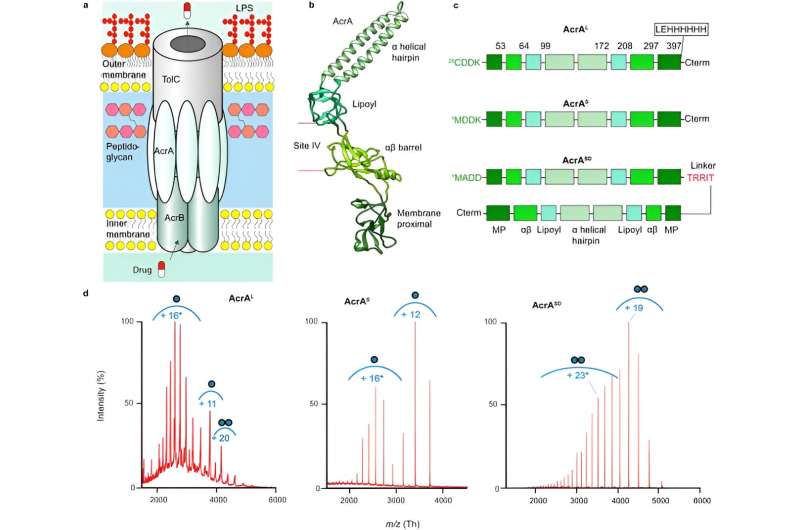This article has been reviewed according to Science X's editorial process and policies. Editors have highlighted the following attributes while ensuring the content's credibility:
fact-checked
peer-reviewed publication
trusted source
proofread
Researchers discover method to overcome antimicrobial resistance

The World Health Organization has labeled antimicrobial resistance a global threat because most clinical antibiotics are no longer effective against certain pathogenic bacteria. The Center for Antibiotic Discovery and Resistance at the University of Oklahoma (OU), led by Helen Zgurskaya, Ph.D., and Valentin Rybenkov, Ph.D., is working on finding alternative therapeutic solutions.
Antibiotics work by targeting specific parts of a bacteria cell, such as the cell wall or its DNA. Bacteria can become resistant to antibiotics in a number of ways, including by developing efflux pumps—proteins that are located on the surface of the bacteria cell. When an antibiotic enters the cell, the efflux pump pumps it out of the cell before it can reach its target so that the antibiotic is never able to kill the bacteria.
However, OU researchers have contributed to a recent discovery published in the journal Nature Communications. The scientists found a new class of molecules that inhibit the efflux pump and make the antibiotic effective again.
The inhibitors have a novel mechanism of action, which until recently remained unclear. Zgurskaya's team, in collaboration with teams at the Georgia Institute of Technology and King's College London in the United Kingdom, have uncovered that these inhibitors work as a "molecular wedge" that targets the area between the inner and outer cell membranes and increases antibacterial activities of antibiotics. Understanding this mechanism can facilitate the discovery of new therapeutics for clinical applications.
"We already live in a post-antibiotic era, and things will get much worse unless new solutions are found for antibiotic resistance in clinics. The discoveries we've made will facilitate the development of new treatments to help mitigate an impending crisis," Zgurskaya said.
Helen Zgurskaya is a George Lynn Cross Research Professor and Valentin Rybenkov is a professor of biochemistry, both in the Department of Chemistry and Biochemistry, Dodge Family College of Arts and Sciences at the University of Oklahoma.
More information: Benjamin Russell Lewis et al, Conformational restriction shapes the inhibition of a multidrug efflux adaptor protein, Nature Communications (2023). DOI: 10.1038/s41467-023-39615-x
Journal information: Nature Communications
Provided by University of Oklahoma





















